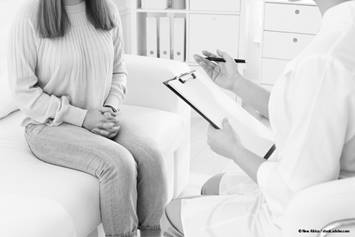Sexually Transmitted Infections (STIs)
STIs are infections that spread from one person to another through sexual contact. Some can also spread by blood or from parent to baby during birth.
What Are Sexually Transmitted Infections (STIs)?
Sexually transmitted infections (STIs) are spread through body fluids or skin-to-skin contact during oral, vaginal, or anal sex. The fluids include blood, semen (before and after ejaculation), vaginal fluids, and rectal fluids. Some STIs can be spread during breast/chest feeding, pregnancy, or delivery to a baby if the birthing parent is infected.
- STIs are very common, especially in teens and young adults.
- You cannot get STIs through casual contact, such as shaking hands, sharing clothing, or touching a toilet seat.
- Common STIs are HPV, gonorrhea, chlamydia, syphilis, trichomonas, herpes, and HIV.
How Are STIs Prevented?
Not having sex (abstinence) is the best way to avoid STIs and HIV. If you do have sex, these things help lower your risk of getting an STI:
- Limit your number of sexual partners. Ask your partner(s) about their sexual history.
- Use a new condom each time you have sex for the whole time you have sex.
- Have an extra condom with you in case the one you’re using breaks.
- Vaccines are available for 2 STIs: Hepatitis B and HPV. You can get vaccinated if you’ve had an STI in the past. This can greatly lower your risk of getting either of these STIs.
Consent
It should always be a person’s own choice whether to engage in sexual activity. Being under the influence of alcohol or drugs may make it harder to make an informed choice. Whether or not you’re using alcohol or drugs, no one should ever pressure or force you into having sex or engaging in sexual activity.
Risk Factors
If you’re at a higher risk for STIs, get tested more often. Things that can increase your risk:
- Oral, vaginal, or anal sex without an external or internal condom or dental dam
- Sex with a new partner or many partners
- Sex with someone who has an STI
- New and old (previous) STIs in the past
- Trading sex for money, drugs, or anything else
What Are the Signs and Symptoms of STIs?
Most STIs do not have symptoms and depend on which STI you have. You can spread STIs without having any signs or symptoms. Some common STI symptoms include:
- Vaginal smell
- Pain or burning when peeing
- Belly (abdominal) pain
- Fluid (discharge) from the penis, vagina, or rectum
- Sores or bumps on the genitals or anus
- Swollen lymph nodes or glands in the groin area
What Testing Is There for STIs?
- Get tested for STIs at least 1 time each year if you’re having sex. Tell your doctor or health care provider if you:
- Are at a higher risk for STIs.
- Think you have an STI.
- Have had sex with someone you think has an STI.
- There is not 1 test that checks for all STIs. You may need more than 1 kind of test.
- Some STIs can be tested through pee, blood, genital discharge, open sores, or with a cotton swab of your throat or rectum.
- Most tests are collected by your doctor or health care provider. You may be able to collect the sample yourself. Ask your doctor or health care provider first.
- You may need an exam and testing for some STIs. Your doctor or health care provider may need to look at and test any sores or collect genital discharge.
- Test results usually come back within 2 to 3 days or sooner.
How Are STIs Treated?
- Some STIs can be treated and go away completely. Others cannot be cured, but the symptoms can be treated with medicine.
- Antibiotics may be used for STIs caused by bacteria and parasites. You must take all of your medicine until it is gone, even if you feel better.
- Anti-viral medicines may be used for some STIs caused by a virus. They can treat symptoms and may lower the risk of giving the STI to a sex partner.
- Some STIs make it easier to get HIV. Get tested for HIV if you’re diagnosed with any other STIs.
- You and your partner(s) must be treated and have a follow-up health care visit if symptoms do not go away after treatment.
- Come back for all follow-up appointments. You must get retested in 3 months. People with a history of STIs are more likely to get infected again.
Treatment for Partners
- Your partner(s) must be treated. Treatment not only protects your sexual partner(s), but it also keeps you from getting infected again.
- If your partner(s) does not have a regular doctor or health care provider, they can be treated for free at the Columbus Public Health Sexual Health and Wellness Center, 240 Parsons Avenue, Columbus, Ohio 43215. The phone number is (614) 645-7772. If they live outside the Columbus area, they can call their local health department.
- If you do not think your partner(s) will get treated on their own, tell your doctor or health care provider. They may be able to write a prescription for your partner’s treatment. This is called expedited partner therapy (EPT).
Helping Hands™ Patient Education Materials
Helping Hands™ are easy-to-read guides about different illnesses, therapies, surgeries, and more. They’re created by the Patient Education team at Nationwide Children’s Hospital and are reviewed and approved by clinical staff, like nurses, doctors, pharmacists, and psychologists. Nationwide Children's Hospital is not responsible for misuse of information in patient education materials, including Helping Hands.
HH-I-428 | ©2017, revised 2025, Nationwide Children’s Hospital



